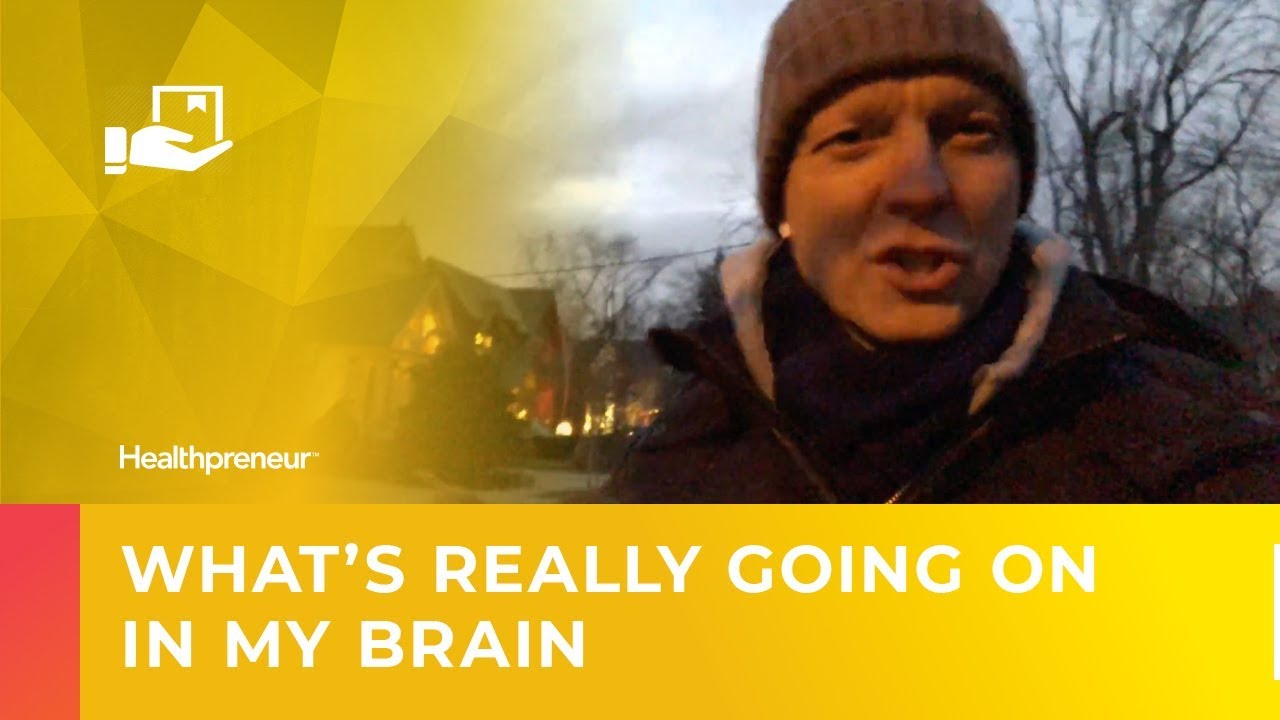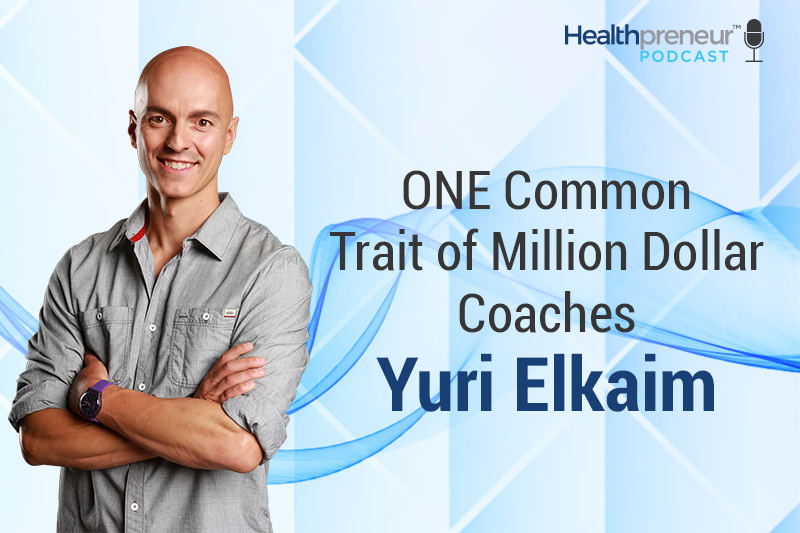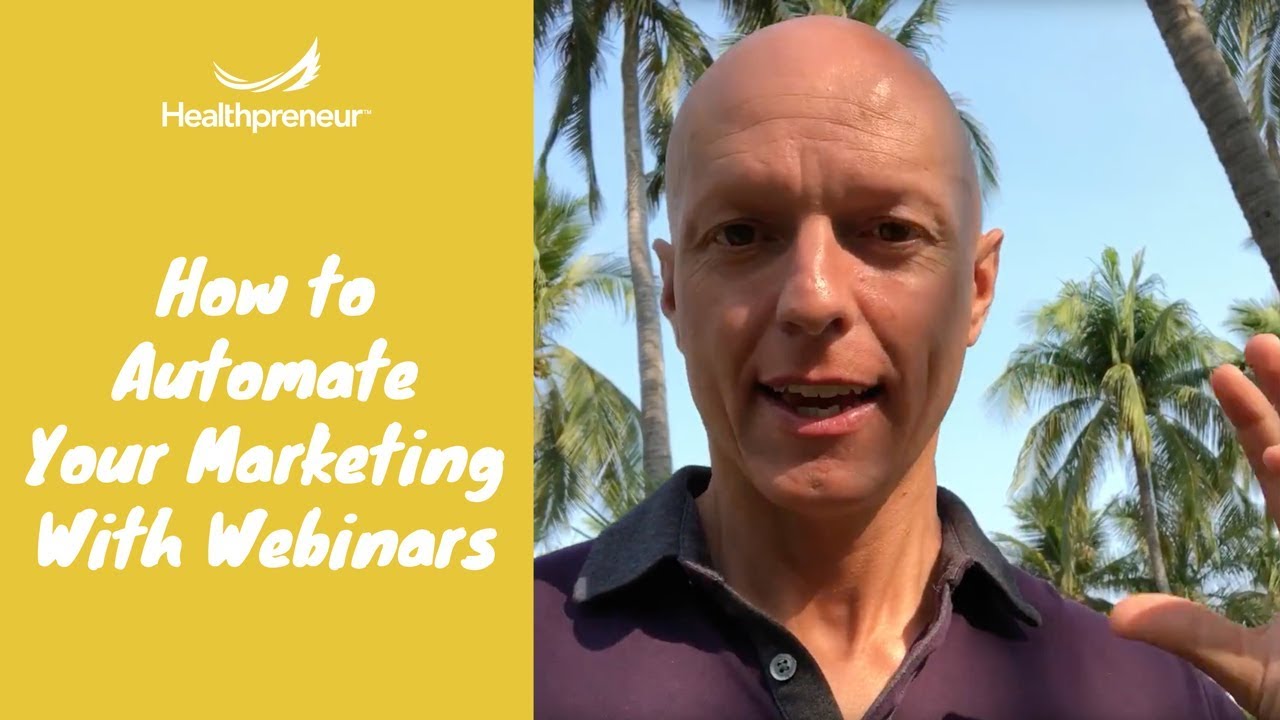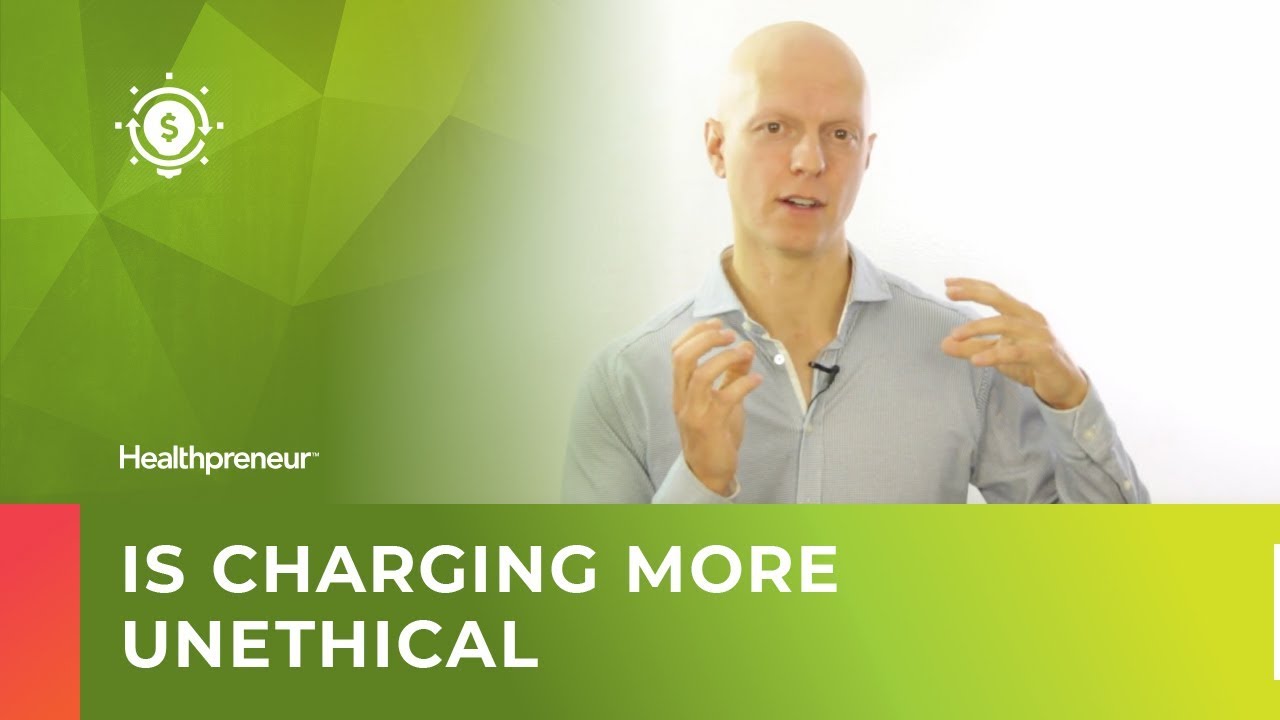Overcoming Self-Doubt and Naysayers with Bestselling Author Irene Drabkin
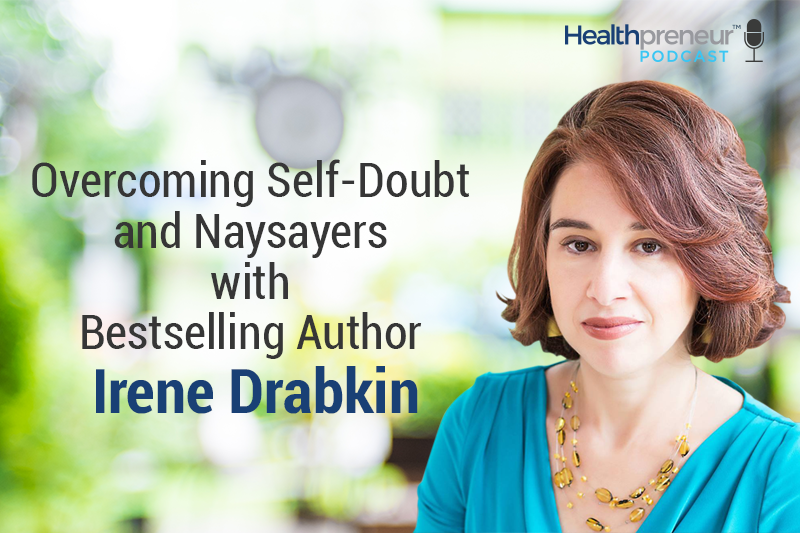
Today we’ve got a very cool episode on the Healthpreneur podcast. I’m going to be talking to Irene Drabkin—author of The Power of the Educated Patient, which is a number one Amazon Bestseller. For anyone who is interested in writing a book or has already written a book, there are some excellent nuggets of wisdom in this episode. And there’s plenty for everyone else, too.
Irene is originally from Russia, but now lives in the U.S. She is a certified integrative nutrition health and wellness educator, accredited by Columbia University and the American Association of Drugless Practitioners. She is also currently pursuing her master’s degree in health promotion at Maryland University of Integrative Health.
What is really cool about this interview is that although Irene’s book has been extremely successful, she is still on her journey. She’s not at the pinnacle yet. And she is coming from a very heartfelt place—she is very open about her challenges and struggles, which I’m sure many of you will appreciate hearing.
I don’t want to give away too much, but imagine if you’re an alternative practitioner and you are surrounded by medical doctors. Yeah. Not the easiest situation to be in. Read on to find out what I’m talking about.
In this episode Irene and I discuss:
- Why Irene is pursuing her master’s degree
- How she dealt with being surrounded by MD’s
- Her daughter’s fascinating health story
- A whole handful of book-writing tips and tricks
- Facebook groups
- Being a mother and an entrepreneur
4:00 – 12:00 – Irene’s start and her daughter’s health story.
12:00 – 16:00 – The three people you need to write a book
16:00 – 19:00 – Irene’s support group and how they helped her throughout her journey.
19:00 – 23:00 – Self doubt vs. self belief
23:00 – 28:00 – Knowing when to give advice
28:00 – 30:00 – Rapid five questions
Transcription
We’ve got a great guest, Irene Drabkin, and what’s cool about this interview is that, first and foremost, she is Russian. So there is a bit of a thick accent, just wanna give you a forewarning.
Irene is a certified integrative nutrition health and wellness educator, and she actually is accredited by Columbia University and the American Association of Drugless Practitioners. She is also currently pursuing her master’s degree in health promotion at Maryland University of Integrative Health.
She’s the author of The Power of the Educated Patient, which has become an instant Amazon number one Best Seller, and was actually in the top 50 of all books on Amazon for a little while, which is pretty amazing.
So what I love about this interview is that Irene is still not at the pinnacle of her journey, and no one is, right? But what’s really amazing about what we’re going to go through is that she comes from a very heart-centered place—as obviously all of our guests do—and she’s very open about her challenges and her struggles.
She’s going to talk about what went into getting a book done, to the people that are required to help get a book from your head into its finished version. And she’s also going to talk about what it was like growing up in a family surrounded by medical doctors.
So just imagine this—you’re an alternative practitioner, and everyone around you is a medical doctor. How did she do it? How did she keep moving forward? Well that’s exactly what she’s going to tell us about in this episode.
So without any further ado, we’ll bring Irene onto the podcast. Let’s bring Irene into the lair—not that it’s a lair and I’m a dragon or anything—but let’s just bring her onto the show and let’s just get this party started.
Irene, welcome to the Healthpreneur podcast. How you doing?
Irene: Hi, hi Yuri, thank you so much I’m very honored to be here and talk to you, thank you.
Yuri: Awesome, likewise. I’m excited for our conversation. So what’s new and exciting in the world of Irene? What are you working on these days?
Irene: Well, it’s fall—it’s September, seventh of September—so my kids are back to school, I have a little bit more time now, and I’m back to my work helping clients, helping people with their energy level, with emotional eating, stress, losing weight.
And, I’m also pursuing my master’s in health education. So, down the road I’m going to be doing what I do now, not just with clients, but at the universities and hopefully corporate places.
Yuri: Awesome. So, doing this studying, pursuing the master’s—how is that as you’re building your business?
Irene: You know, to be honest, for the success of my business, I’m ready to do my work. I’ve been doing my work for about seven years now. Master’s—they do help, I’m getting new knowledge, I’m meeting new people. But mostly, it’s just to add a couple letters to my name.
Irene’s start and her daughter’s health story
I’m already a best-selling author which helps, but these letters, they do open more doors, to be honest. But I do learn new things and how to incorporate what I already know and deliver what I already know to more people with different backgrounds and different level of acceptance—because not everyone is open and accepting to alternative and holistic medicine.
And I know it firsthand because actually my whole family is physicians—conventional MDs, including my mother and my husband. And I’m a holistic health practitioner and NLP master coach, so it wasn’t easy for me at the beginning. It wasn’t easy for my family to accept what I was doing when I was implementing my alternative medicine like oils, nutrition, homeopathic medicine.
But as we grew, as we went, they saw the difference. Like when my kids were born, they were sick all the time, and conventional medicine didn’t help us. And I have specific examples, more about health, not about the business … But my daughter was suffering with an allergy—well, we didn’t know if it was an allergy … When she started the first grade, she suffered from symptoms like stomach pains. And within a month or two, she became disabled—she couldn’t go to school because she didn’t know when the pain would find her.
Yuri: Wow.
Irene: And for so many physicians—Harvard doctors, my husband was trying to help, and all they found was that she had some stomach problems, so they put her on a drug. And as a holistic mother and a health practitioner, I refused to give her this drug.
But within a few weeks, I had to choose the lesser of the two evils. She was becoming socially disabled, so I put her on the drug and it didn’t help. And moreover, it made things worse because now she didn’t believe that anything could help her.
She was getting worse and worse, and I tried everything I could—oils, natural medicine … And then I had nothing left. There was one thing I didn’t think of that was gluten. And I know about gluten intolerance, but my daughter was tested negative for celiac disease.
But I had nothing to lose, so I remember on Saturday I did my food shopping and on Sunday the whole family had the gluten-free breads, gluten-free pasta. On Monday I drove my daughter to school and she was crying—she didn’t want to go, she didn’t want to let my hand go, because she was afraid.
But when I came to pick her up that Monday, she got into the car and started to tell me how good her day was, how she was playing with other kids, instead of crying. A few minutes into that, I asked her, “How many times did you get sick today?” And she stopped, she thought about it … And then she said, “You know Mommy? I forgot all about it.”
Yuri: That’s great.
Irene: Yes, on Monday, the same thing happened, and on Wednesday I didn’t even ask.
So this is the example of how a simple, inexpensive thing can help change someone’s life. And if I wasn’t who I was, I would have to follow—like all other mothers—the doctor’s prescriptions.
And she was actually prescribed to do surgical procedures, which I know would not have helped.
Yuri: True.
Irene: So that’s an example of how people like us, like you and me, can help others with simple answers.
My daughter’s story is the first story in my best-selling book, The Power of the Educated Patient, where I interviewed over 20 people with different health conditions and they gave me their stories. And I have stories with bipolar disease, stage four metastatic cancer, depression, Lyme disease—all different kinds of stories, and all those people were searching for healing, some of them for years. And they found healing through both the combination of alternative and conventional.
Because I’m not against conventional medicine. If there is a car accident, thank God for conventional medicine. But if there is a chronic condition, we need to get help from holistic practitioners like yourself and me.
Yuri: Sure. Definitely. That’s amazing, and that’s why it’s great to take your wisdom and share it in the form of a book, which you did really well on Amazon with.
For people that are looking to share their expertise, share their knowledge in the form of a book, what advice can you give them? After the book is written, how did you get it out? How did you get people to buy it? How did you get the word out for that book?
Because there’s a lot of people who write a book and then it’s just kind of crickets—no one knows about it. So how do we get that in front of more people?
Irene: Yes, and I totally agree with you Yuri, because there are many wonderful, amazing books but nobody reads them, nobody finds them.
So, I mean, it’s important that you love your book. That you love and you believe in your book.

This book was like my third baby—I spent over two years putting it together, and I knew I had to help this baby grow and to get to know the world. So, actually I took a few courses—not about book writing, but about book publishing. They are very important.
I took, I think, three different courses, and they were all different. Some of them were good, some of them were bad, and some of them were not as good. But, they all gave me little nuggets, which I used.
The three people you need to write a book
There are three people which are important. The book is like when the baby is born—there are two people when the baby is born that are very important. There’s the mother, and the doctor, or whoever is delivering the baby.
When the book is born, I would say there are three people who are important: The author, the editor, and the person who helps to put the technical bits together, like formatting the book and all that.
So I was lucky to find a good editor who believed in my book, because his wife actually went through cancer, so he was helping me … And actually, when I was interviewing editors I interviewed about ten people, and I was looking for someone who would believe in what I was doing.
Yuri: And where did you find the editor? Just so people know where they can maybe find one if they are looking for one.
Irene: Okay, there are different forums. Actually on Facebook, there are different Facebook groups.
Yuri: Smart.
Irene: I don’t remember them all now, but I can kind of find them. I went on them, I became part of their group, and I ask, I put a note that I am looking for an editor.So people got back to me, people recommended me editors, so basically through different forums. Actually, on forums for authors, I asked for recommendations and I put my questions out, so I had people getting back to me and then I interviewed them.
Again, I was looking for two things: How skilled the editor is, and whether or not he or she believes in what I do, and the mission of my book.
And I was lucky to find an editor who really believed in the mission of my book.
So that is the second person who was important in the success. The third person was the person who put it together—the formatting and stuff—and actually I’ve tried a few people.
Everyone knows about the site, Fiverr.com. There are great people there.
Some of them are in Europe … I never talked to them on the phone, but we communicated through email, and there I found a good person who helped me to put it together. And for the book cover I also found help on Fiverr.
If you can see my book on Amazon, The Power of the Educated Patient, it looks very professional. And it has over one hundred reviews, positive reviews, worldwide. About 80 in the US, and it has reviews from Japan, Germany, UK—I don’t even know how these people know about it!
Yuri: That’s great.
Irene: So three people. And I would suggest for whoever’s writing the book, to start looking for an editor as early as they can. Because it’s a relationship they need to build on. So, if they have an idea what they’re going to be writing, it’s better to start looking for the right editor. Because for the success of the book, it has to be the right fit.
Yuri: True. So once the book is done, it’s ready to go, it’s all published, it’s printed, you have it sitting on Amazon, how do people buy it?
How are you getting the word out to people—through whatever means. How did you do that?

Irene’s support group and how they helped her throughout her journey
Irene: Well, as I mentioned Yuri, I did join a few courses about book writing, book editing, book publishing, and I found there was a forum on each of those courses.
I found a group of people I really liked, and we had so much in common, so I actually created a support group for my book. And it had quite a few people—there were like 70 people, maybe more.
So it was really an exchange. As I was writing, I was sharing tips and lessons. Whenever I made a mistake, I would share—I would say, “Well don’t do that, but do this.”
When the book was done, I actually sent everyone a PDF copy of the book so they can read that.
Yuri: Yep.
Irene: And when the time came, I asked everyone, “If you like the book, please give me your honest review. Or if you don’t like the book, I’m just looking for an honest review.”
Yuri: Sure.
Irene: And I was lucky that people actually took the time out of their busy lives and they gave me reviews.
Yuri: That’s cool.
Irene: And so some of the reviews I have up are from there, some of them are from people I’ve never met, never talked to, never communicated with—they just found the book, I guess through the people they knew, or through Amazon, or through searching.
My book was published almost two years ago in November, and it became an instant best seller. It was number one in three categories, and believe it or not, I became one of the top 50 authors in health and wellness!
Yuri: Good for you, that’s awesome. And I think what you did was very smart; you basically had a, kind of a support group, you gave them great stuff, you’re adding value to them.
Irene: Yes.
Yuri: So there’s this kind of sense of reciprocity that was built, so that when you ask them for a small favor they’re more likely to help you out. Which is a really smart thing to do.
And for anyone listening who’s thinking of writing a book or who has a book, I think it’s a really simple way of just kind generating that goodwill with your audience to support what it is that you do. So that’s really cool.
So in this journey of writing the book or launching the book, even throughout your business—what’s been one of the biggest challenges?
You talked about your parents being physicians and that; outside of that what’s been another big challenge you’ve had to deal with in your business, and how have you overcome that?
Self doubt vs. self belief
Irene: The biggest challenge … I guess … I think we need to keep believing in ourselves. So the biggest challenge was when I’m feeling down, just overcoming that and to keep believing in my mission.
My aim is to start talking to physicians and medical students and my husband, as a traditional MD says, “Well, you don’t know all the biochemistry and the science they know. How can you talk to them?”
And then I answer, “Well, but they don’t know the simple things that I know!”
Yuri: That’s very true.
Irene: Yes. But you know? In the back of my mind, it kind of gives me some doubts. “Well, what if they ask me this biochemistry question and I can’t answer?”
So, I guess this is actually one of the reasons why I’m doing my master’s now—so I have more credentials and more knowledge. But this is … this one of the little things we need to overcome.
And even though my family and my husband are the biggest supporters now, but … I guess it’s me, the mom, that I need to persuade. You are on the right track and you’re doing a good job and you have to keep going.
Yuri: Yeah, well you definitely are, and I wanna thank you for sharing that. I think you’re very honest about that, so I appreciate you sharing that.
We are our biggest obstacle, our biggest worst enemy—the negative self talk, and the self doubt. That’s part of a lot of the stuff we do. And especially with your situation—your parents and husband are all MDs, and to win them over, over time, is pretty amazing.
It’s very tough, it’s like someone who wants to lose weight, but they live in a household of obese people, it’s not easy to do.
So I want to commend you on being able to kind of just continue moving forward and sticking to your mission because there could be more supportive environments to live in and you’ve done a great job.
Irene: Thank you Yuri, really appreciate you saying that.
Yuri: Yeah, for sure. So knowing what you know now, if you were to start your business all over again, what would you do differently, if anything?
Irene: I would still take the courses I’ve taken, even though I don’t use some of them, the trainings I’ve taken, so many trainings.
But differently? Um … I don’t know. Maybe I would go faster, but I did have small children when I started, so, I don’t know Yuri. Maybe … I don’t know what I would do differently now.
Yuri: Okay, that’s fair. It’s not an easy answer to … not an easy question to answer. So I’ll give you another one: So on your journey, with all that you’ve learned, what do you think is a really important skill for entrepreneurs to possess for lasting success?
Irene: Well, the most important thing is self belief. Self doubt destroys you.

So you have to believe in what you are doing first. You have to believe that this is a good thing. It’s great if it brings you money, but you have to actually believe in what you’re doing. You can’t be there just for the money.
So, self-belief. And if there are doubts, and we all are humans—just keep going. Find a support group.
I guess the support group is very important, and I do have a great support group on the forums, from the nutrition school I attended. So, that’s very important too.
Yuri: That’s great. I was just about to ask you, is there a ritual or a practice that you engage in to build up that belief when you’re feeling down? Or is it really kind of leaning on that support group? Which I think is amazing.
Irene: Yeah. I would say the support group is good, but sometimes I just need to take the time for myself and really think, recharge, watch an old movie, and then I’m back.
Yuri: Sure. So, what lesson have you learned the hard way? What’s one thing you’re like, “Man, that took me a while to learn”?
And how can you help others avoid that mistake?
Irene: I guess we have to take the negativity. There are negative people, they’re everywhere, and fortunately there are not many of them. And sometimes, it’s not that people don’t believe in the work you do—they might be jealous of you.
And it has nothing to do with the work or even you, it’s about them. So you have to go past them. And not pay attention to them. Because what you’re doing is important.
Yuri: Well I think that’s a good one. They’re energy vampires, right? They suck the life out of you, they don’t encourage you, and I think a common theme that comes up in our conversation here is the power of surrounding yourself with the right environments. To really help you overcome those self doubts and get away from that negativity.
Just like with raising a family—they say it takes a village to raise a family. And I think of the same thing is true in business—you need the support, whether it’s from family or friends or a support group, it’s important to have that around you.
Because if everyone’s just saying, “You can’t do this, you’re not good enough, it’s never gonna work, it’s only a matter of time.” … We can only believe in ourselves so much before we break apart.
Irene: Yeah.
Yuri: So I think that’s a great lesson, for sure.
Knowing when to give advice
Irene: Another one Yuri, I have to mention, is people have to be ready. Have to be ready for your advice.
Yuri: Yeah.
Irene: Never insist your advice, never push your advice. That’s what I’ve learned.
Yuri: That’s great.
Irene: Because there are some MDs, like my husband has many MD friends who come to our house. I remember that a heart surgeon came to our house and he brought a cake, and a huge bottle of Diet Coke. Ten years ago, and he is a bright man, and his wife was pregnant at the time.
So I took this Diet Coke and I poured it out in my sink. And to this day, it’s been years, I regret that. Because he looked at me in shock, and I explained why I did it, I made a joke out of it, but he was not ready for that.
So never push your advice. People have to be ready, and you have to take them, meet them where they are.
Yuri: That’s really, really, valuable. Guys, that is such a key lesson. Because so many of us in the health space—we wanna convince people. “This is what you have to do, you need this,” but as you said, you have to meet people where they’re at.
And if they’re not ready to hear it, you can’t waste your time there. You can only talk to people who are ready to be spoken to.
Irene: Yes, yes, yes. And that’s actually another negative thing, because when I offered my help to some MDs, they never said no, but they never came back to me. And I understand now, it’s because they are not ready.
They don’t know about alternative medicine or alternative medicine yet. So, yeah. Let people get ready. In time, they’ll come back to you.
Yuri: Totally. That’s awesome. So I know you’ve got kids—what has having kids taught you about marketing, business, entrepreneurship?
Irene: Time management.
Yuri: That’s a good one, for sure.
Irene: I remember when I was writing my book, my kids were smaller, and if I had like ten minutes in a row, I could have accomplished so much!
Now they both are in school, so I have a few hours to myself. So I learned how to manage time and how to make the most of what I had. Uninterrupted time … It’s magic.
And so, I’ve learned how to not look at Facebook or different social media sites. It’s time management, and it’s very important for any success.
Yuri: Awesome. Great, great stuff. Irene, this has been a lot of fun. Are you ready for the rapid five?
Irene: Okay.
Rapid five questions
Yuri: The rapid fire five questions, you have no idea what they are, I’m just gonna fire them at you. Whatever comes to mind, just go with that. Sound good?
Irene: Okay!
Yuri: Alright. Number one: your biggest weakness.
Irene: I like to sleep.
Yuri: Cool. Number two: your biggest strength.
Irene: I am very motivated.
Yuri: Yes, I can tell, for sure. Number three: one skill you’ve become dangerously good at in order to grow your business.
Irene: Managing my time and talking to people, getting right people on board.
Yuri: Very nice. What do you do first thing in the morning?
Irene: Go and make breakfast and wake up my children.
Yuri: They don’t wake you up, that’s good. [laughing]
Irene: I know! [laughing]
Yuri: And finally, complete this sentence: I know I’m being successful when …
Irene: When I have that feeling that I had a good day. When I feel like I have done something good today. Good for my business. And obviously, when I get an email, a phone call, a letter, a review for my book—people thanking me for what I’ve done and sharing their stories of how I helped them.
That is when I feel good, and that is when I feel I am on right path—I am successful.
Yuri: Awesome. Good. That’s great.
Irene, thank you so much for taking the time to share your journey, your experiences, your wisdom with us—it’s been a lot of fun. What is the best place for people to follow your work online?
Irene: The best place is my website, which is www.Irenehealthandwellnesseducator.com. I also have another site, www.thepoweroftheeducatedpatient.com. My email address is [email protected].
Yuri: Perfect. And we’ll make sure to link up to all that good stuff in the show notes guys, over at the blog which you can go to after listening to this episode.
It’s been a lot of fun Irene. Thank you so much, I appreciate the work that you’re doing and for persevering in spite of all the challenges that we all encounter—you’ve done a great job and I hope you all the continued success.
Irene: Yuri, thank you so much for having me on your show—I really appreciate the work you are doing.
Yuri: Thank you so much.
Irene: Thank you.
——————————————————————
Now if you’re like Irene, and you have a surrounding—family members, colleagues, friends—who have gone one route, let’s say the medical allopathic route. And now you’re here doing this kind of alternative thing … I’m sure you can relate to what Irene talked about. Some of the challenges, the struggles, how she’s able to overcome that and really stay strong in the face of quote unquote adversity.
Because again, everyone has their opinions, right? Maybe it’s your father or your mom who wants you to become a lawyer, a doctor, and if you don’t then there’s disapproval and all this kind of stuff.
At the end of the day, you have to do what you do. You have to do what’s right for you based on your path in this world. So I’m really happy that Irene was able to share what she’s gone through and some of the lessons that she’s learned that hopefully will inspire you as well.
——————————————————————
Follow Irene Drabkin At:
https://www.irenehealthandwellnesseducator.com/
If you enjoyed this episode, head on over to iTunes and subscribe to Healthpreneur™ Podcast if you haven’t done so already.
While you’re there, leave a rating and review. It really helps us out to reach more people because that is what we’re here to do.
What You Missed
Check out our last episode, the solo round, where I talked about five ways to be a more productive entrepreneur. That was golden. If you missed it, go check it out after this one.
If you value getting stuff done without working 20 hours a day, that episode is going to give you a much more streamlined, focused approach to getting more stuff done in less time, and really help you focus on what matters most.


